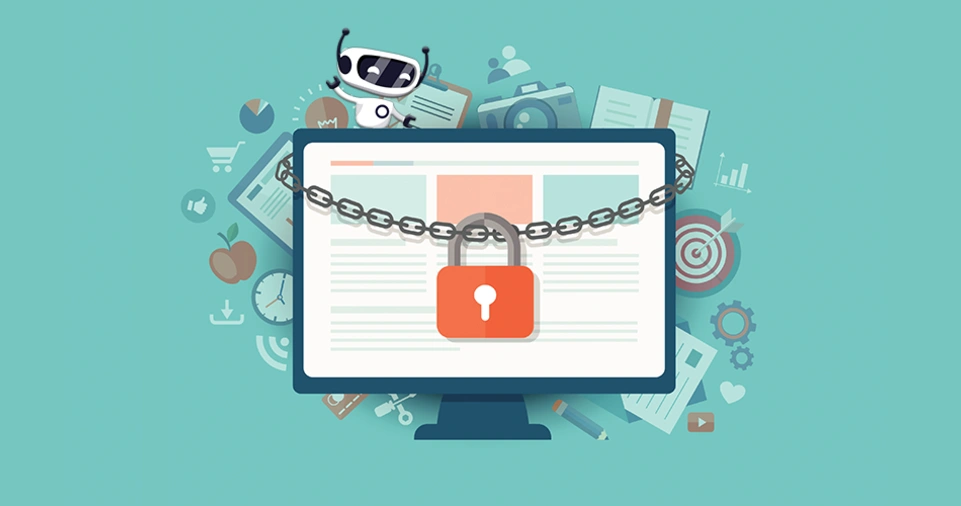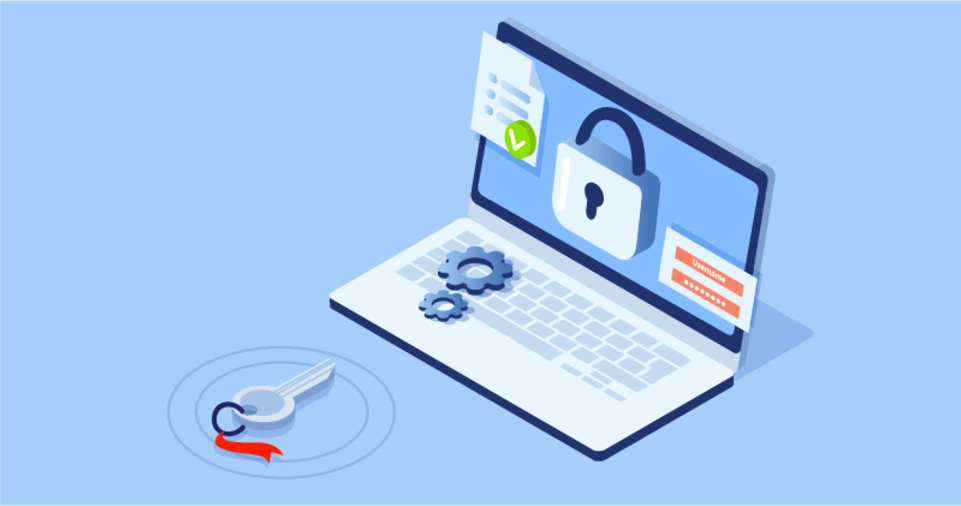In today’s digital world, maintaining online privacy has become a crucial concern. Every time you browse the internet, use social media, or shop online, you leave behind digital footprints that can be tracked and exploited by cybercriminals, corporations, and even governments.
Data breaches, identity theft, and cyber-attacks are rising, making it essential to take proactive measures to safeguard personal information.
Many online services track users to personalize ads, while hackers attempt to steal sensitive information for malicious purposes.
Protecting your online privacy doesn’t mean staying off the internet entirely; instead, it involves implementing smart practices to ensure your data remains secure.
From using strong passwords and enabling two-factor authentication to browsing with a VPN and avoiding phishing scams, there are numerous ways to stay safe online.
This comprehensive guide will explore essential steps, tools, and strategies to maintain your privacy and security in the digital space.
Step By Step Guide to Protect Your Privacy Online

Use Strong and Unique Passwords
Why Password Security Matters
Passwords serve as the first line of defense against unauthorized access to your accounts. Weak or reused passwords make it easier for hackers to breach accounts, potentially leading to identity theft or financial loss.
Many cybercriminals use brute-force attacks, where automated programs try numerous password combinations until they gain access.
Best Practices for Strong Passwords
- Use a Combination of Characters: Create passwords with a mix of uppercase and lowercase letters, numbers, and special characters.
- Avoid Common Words and Phrases: Words like “password123” or “admin” are easy to guess.
- Use a Password Manager: Tools like LastPass, Bitwarden, or 1Password generate and store strong passwords securely.
- Change Passwords Regularly: Update passwords at least every six months to reduce risk.
- Use Unique Passwords for Every Account: Reusing passwords increases the likelihood of multiple account breaches if one gets compromised.
Enable Two-Factor Authentication (2FA)
What is Two-Factor Authentication?
Two-factor authentication (2FA) adds an extra layer of security by requiring a second verification step in addition to a password.
Even if hackers obtain your password, they won’t be able to access your account without the second factor.
Types of Two-Factor Authentication
- SMS Codes: A one-time password (OTP) is sent via text message.
- Authentication Apps: Apps like Google Authenticator, Authy, or Microsoft Authenticator generate OTPs.
- Hardware Security Keys: Devices like YubiKey provide physical authentication.
- Biometric Authentication: Fingerprint or facial recognition provides added security.
Why 2FA is Essential
- Protects against phishing attacks.
- Prevents unauthorized access even if passwords are compromised.
- Reduces the risk of data breaches.
Use a VPN (Virtual Private Network)
How a VPN Works
A VPN encrypts your internet connection, masking your IP address and making your online activity anonymous.
This prevents hackers, internet service providers (ISPs), and websites from tracking your data.
Benefits of Using a VPN
- Privacy Protection: Hides browsing history from ISPs.
- Secure Public Wi-Fi Usage: Protects data when using coffee shop or airport Wi-Fi.
- Access Restricted Content: Allows access to geo-blocked websites and services.
Choosing a Reliable VPN
- No-Logs Policy: Ensure the provider doesn’t store your browsing history.
- Fast and Secure Servers: Look for AES-256 encryption and multiple server locations.
- Reputable VPN Providers: NordVPN, ExpressVPN, and ProtonVPN offer strong privacy features.
Limit Personal Information Shared Online
The Risks of Oversharing
Many users unknowingly share sensitive information that can be exploited by hackers or scammers.
Posting personal details, such as your birthdate, phone number, or home address, increases the risk of identity theft and fraud.
How to Protect Your Information
- Adjust Social Media Privacy Settings: Restrict who can see your posts and personal details.
- Avoid Publicly Sharing Location Data: Disable location tracking in apps.
- Be Cautious with Online Forms: Only provide necessary information to trusted websites.
- Use a Separate Email for Online Registrations: This prevents spam and phishing attempts on your primary email.
Be Cautious with Public Wi-Fi
The Dangers of Public Networks
Public Wi-Fi is convenient but often unsecured, making it easy for hackers to intercept data and steal sensitive information.
How to Stay Safe on Public Wi-Fi
- Use a VPN: Encrypts your internet traffic.
- Avoid Logging into Important Accounts: Don’t access banking or email accounts on public networks.
- Turn Off Auto-Connect: Disable automatic Wi-Fi connections to prevent connecting to rogue networks.
- Use HTTPS Websites: Ensure websites use secure HTTPS connections.
Use Secure and Encrypted Communication
Why Encryption Matters
Hackers can intercept unencrypted messages, exposing private conversations and data.
Secure Communication Tools
- Messaging Apps: Signal, Telegram, and WhatsApp offer end-to-end encryption.
- Encrypted Email Services: ProtonMail and Tutanota provide secure email encryption.
- File Encryption Software: Tools like VeraCrypt protect sensitive files.
Regularly Update Software and Apps
Why Updates are Important
Outdated software can have security vulnerabilities that hackers exploit.
How to Stay Secure
- Enable Automatic Updates: Keep your operating system, browsers, and apps updated.
- Use Reliable Security Software: Antivirus programs like Bitdefender or Norton provide extra protection.
- Uninstall Unused Apps: Old or unmaintained apps can be security risks.
Use Private Browsing and Search Engines
How to Browse Privately
Many websites track user activity to collect data for advertising.
Privacy-Focused Browsers and Search Engines
- Browsers: Brave, Firefox, or Tor enhance privacy.
- Search Engines: DuckDuckGo and Startpage don’t track searches.
- Block Trackers: Browser extensions like Privacy Badger prevent tracking.
Be Wary of Phishing Scams
Common Phishing Tactics
Cybercriminals use fake emails and websites to trick users into revealing personal information.
How to Avoid Phishing Scams
- Verify Email Senders: Check email addresses for legitimacy.
- Don’t Click Suspicious Links: Hover over links before clicking.
- Use Anti-Phishing Tools: Web browsers and antivirus software can detect phishing attempts.
Manage Cookies and Trackers
Why Manage Cookies?
Cookies store user data and can be used for tracking.
How to Control Tracking
- Clear Cookies Regularly: Prevent websites from tracking behavior.
- Use Browser Extensions: Ad blockers like uBlock Origin prevent unwanted tracking.
- Enable Do Not Track: Adjust browser settings to limit tracking.
ALSO READ:
Conclusion
Online privacy is essential in today’s digital era, where data breaches and cyber threats are common.
By implementing strong passwords, using two-factor authentication, browsing securely with a VPN, and being cautious about sharing personal information, you can significantly reduce risks.
Regular software updates, secure communication tools, and privacy-focused browsing also enhance protection.
Staying vigilant against phishing scams and managing online trackers ensures a safer internet experience.
Protecting your privacy requires consistent effort, but with the right tools and awareness, you can maintain control over your digital footprint and safeguard your personal data from threats.

